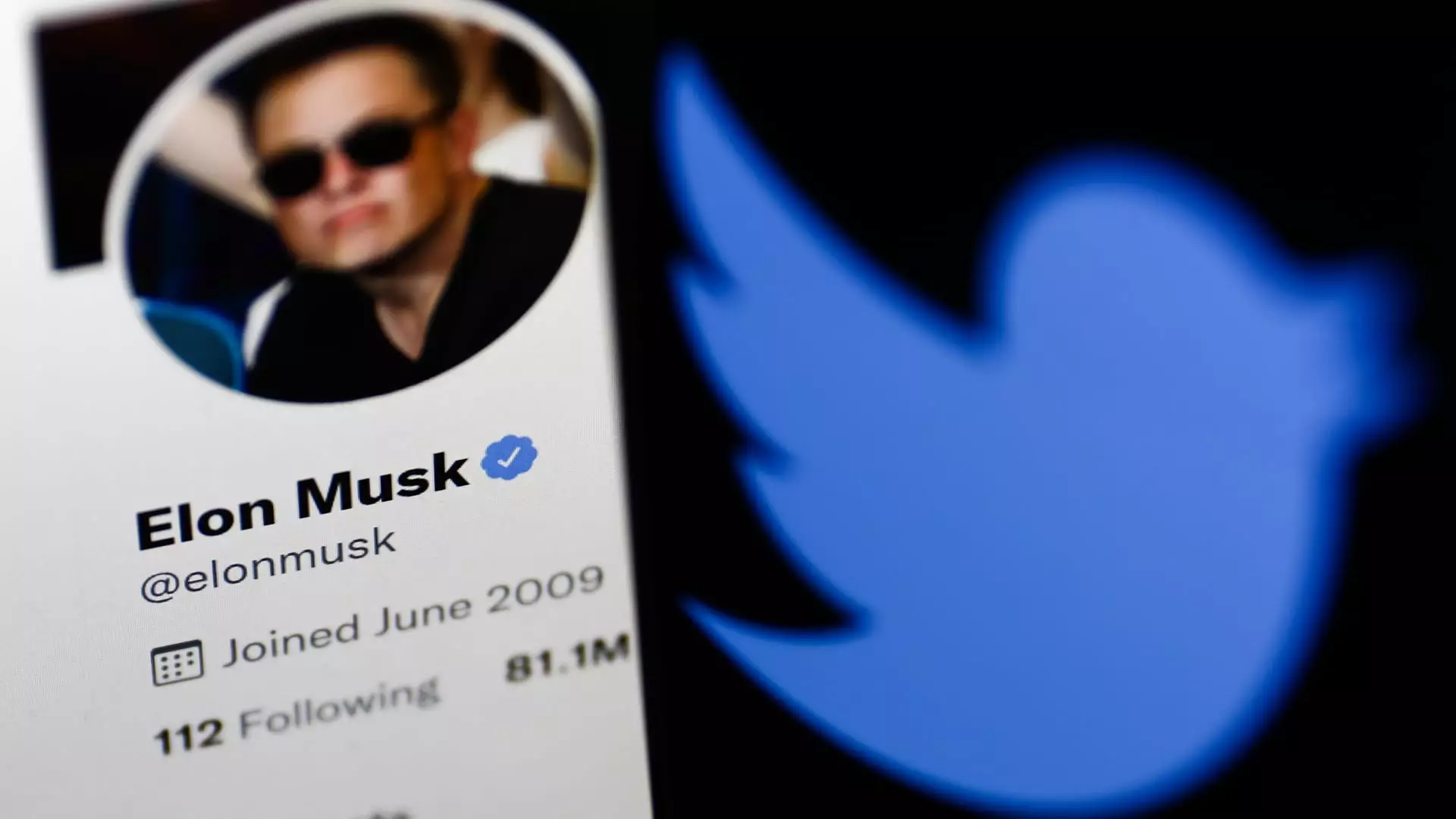The legal battle surrounding Elon Musk, one of the most polarizing figures in the tech industry, is thickening as a judge has allowed a proposed class-action lawsuit against him and his family office, Excession, to move forward. This lawsuit has captured the attention not only of investors and media, but also the broader public. The case, Rasella v. Musk, arises from allegations of financial malfeasance related to his acquisition of Twitter shares—a situation that raises troubling questions about transparency and ethics in the tech world.
It’s astonishing that a figure of Musk’s stature can evoke such fervent feelings of admiration and disgust in equal measure. The former Twitter shareholders, including entities like the Oklahoma Firefighters Pension and Retirement System, claim that they lost significant sums when Musk failed to disclose his significant share purchases within the legally mandated time frame. The crux of the case lies in whether Musk intentionally misled the market while he was quietly building a substantial stake in a publicly-traded company.
A Question of Timing and Intent
Judge Andrew L. Carter’s ruling makes clear that the court views the plaintiffs’ arguments—asserting that Musk’s failure to publicly disclose his Twitter acquisitions sent a “false pricing signal” to the market—as credible. This is significant, especially considering Musk’s reputation for outspokenness on social media. In what can only be seen as disingenuous and manipulative behavior, Musk took to Twitter to make comments about “considering” investments in other social media platforms, misleadingly suggesting that his focus was elsewhere, all while assembling a covert interest in Twitter.
What is particularly egregious is the timing of Musk’s misleading statements. His assertion that his whims were aligned elsewhere does not simply reek of carelessness; it appears remarkably calculated. The judge himself noted that Musk’s tweet on March 26, 2022, about potentially buying a different social network was “reasonable” to interpret as an effort to mislead the public regarding his actual intentions. In essence, Musk’s audacity might end up costing him dearly—not just financially, but in terms of public trust.
The Bigger Picture: Integrity in Business
This lawsuit is part of a broader discourse about integrity in the world of business, particularly among leaders whose decisions can affect thousands, if not millions, of stakeholders. When someone like Musk manages to traverse legal implications with seemingly little consequence, it erodes public trust in the business landscape. In a nation that prides itself on fair market practices, is it acceptable for one individual to play by their own rules?
To his supporters, Musk is a visionary—someone who challenges the status quo and pushes the boundaries of innovation. But one must wonder: at what point does that vision become reckless ambition? In the court of public opinion, the perception that Musk obscured essential information from investors could haunt him. The stakes of this case iron out far beyond the courtroom, extending into how we define accountability in the tech industry.
The Stakes of the SEC Involvement
Adding more weight to Musk’s predicament, the Securities and Exchange Commission (SEC) has thrown its hat into the ring with a similar lawsuit against Musk for alleged failures in properly disclosing his stock purchases. As the nation’s regulatory body, the SEC is not known for taking such actions lightly, especially against a public figure. The implications are vast; if Musk is found culpable in this case, it could set a precedent that affects not just him, but the operational norms of corporate transparency moving forward.
The Future of Musk’s Ventures
Questions remain unanswered about Musk’s future endeavors, as he continues to elude accountability. Following the legal tussles, there’s news about xAI merging with Twitter in a deal reportedly valuing the AI company at an astronomical $80 billion. The audacity of Musk to simultaneously roll out ambitious plans while facing serious questions about his ethical conduct illustrates a perplexing duality: he is both a creator and a potential perpetrator of market manipulation.
One wonders if Musk truly believes his own rhetoric, or if he is just playing to an audience that continues to cheer him on despite a flood of troubling revelations. In tackling this legal challenge, Musk is at a crossroads: he must choose whether to stand boldly in the light or retreat into the shadows that his maneuvers have cast. The verdict on his latest antics may very well shape the contours of ethical leadership in tech moving forward.

